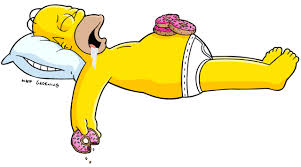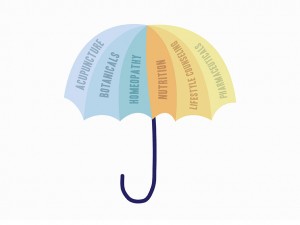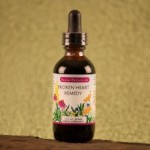~ This article was published in the Emerson Ecologics Womens Health Email update December 2011.
When it comes to the biological basis for mental health disorders, the presumption is an abnormality of neurotransmitters- whether it be excess, deficiency, or abnormal interactions with receptors or transporters. While the focus of current pharmacological therapy is the neurotransmitter and its proteins, the impressive role of lipids, particularly long-chain polyunsaturated fatty acids (LC-PUFAs), cannot be overstated. The weight of the brain is roughly 80% lipid, the richest source of fatty acids in the body and 15-30% of those lipids are essential fatty acids (EFAs) and LC-PUFAs. Nerve cell function, membrane fluidity, neuron membrane dynamics and the subsequent receptor, transporter and neurotransmitter function are profoundly affected by the lipids that we take in from our diet and supplementation. Considerable research including randomised controlled trials now demonstrate the role and efficacy of EFAs in numerous psychiatric disorders.
Depression
According to the American Journal of Psychiatry, depression is one of the 10 most frequent indications for the use of complementary and alternative medicine.1 While many nutraceuticals and botanicals have published evidence to their benefits, omega-3 and omega-6 polyunsaturated fatty acids (PUFAs) are among the more commonly used.2
Epidemiologic studies in several countries suggest that decreased omega-3 fatty acid consumption correlates with increasing rates of depression. One researcher who studied the relationship of fish consumption and the incidence of depression correlated the annual incidence of major depression per 100 people in nine countries with the consumption of fish.3 He found a high incidence of depression in countries with low fish consumption. For example, New Zealanders have an annual fish consumption of about 40 pounds and they had an annual incidence rate of depression of 5.8%. Japan on the other hand, with a fish consumption of almost 150 pounds per year, had the lowest incidence of major depression, at .12%. His group also demonstrated that prevalence rates for bipolar affective disorder rise when the annual fish intake falls below 75 lbs of fish per person annually. In Taiwan for example, there is a 0.04% rate and their fish intake is 81.6 lb per person per year as compared to Germany, the rate is 6.5% at 27.6 lb of fish per person annually. In a survey of 3,204 Finnish adults, infrequent fish consumption was associated with depression in women and although not statistically significant, a trend was seen in men.4 Fish intake also appears to have an influence on suicide with a reduced risk of death from suicide in individuals with daily fish consumption.5
In a study of 20 patients with moderate to severe depression, the relationship between depression and levels and ratios of omega-3 and omega-6 fatty acids in plasma and erythrocyte phospholipids was studied.6 Using two commonly accepted scales and methods of evaluation depression, researchers found a significant correlation between the ratio of phospholipids arachidonic acid to EPA and the severity of depression. The greater the omega-6 to omega-3 ration, the greater the severity of the depression.
In 2010, researchers found that patients with major depressive disorders, exhibited significantly lower erythrocyte DHA composition compared to healthy controls and those with bipolar disorder appeared to have an even lower DHA level.7
Other investigations have confirmed that a high concentration of blood plasma of docosahexanoic acid (DHA), an essential fatty acid found in fish, has been linked to increased serotonin turnover with lower rates of depression and even suicide. Switching to a cholesterol-lowering diet may also result in reductions in measures of depression,8 although not all studies demonstrate this. It appears as though there is a consistent positive association between depression and coronary heart disease and heart attacks.9 They may in fact carry a common cause, that of elevated cholesterol. Since there is such a strong correlation between depression and coronary artery disease, and a predictive correlation between elevated cholesterol and heart disease, elevated serum cholesterol should also predict increased depression.
Depression, secondary to alcoholism, is quite common and occurs in up to 59% of alcoholics. Alcoholism is certainly a complicated illness with social, psychological, hereditary, physiological and physical factors to consider. We know that alcohol is a pro-oxidant that leads to increased lipid peroxidation and a consequence of increased lipid peroxidation may be a decrease in the concentrations of the more highly unsaturated species of fats. Several studies have demonstrated that chronic alcohol abuse depletes long-chain n-3 polyunsaturated fatty acids from neuronal membranes.10 It is hypothesized that the subsequent effect on the membranes may promote the development of depression.
Higher intakes of fish, EPA or DHA did not have a protective role against suicide in more severe situations and has not been associated with a lower risk for suicide in Japan, but women in Japan with very low intakes of fish, did have an increased risk of suicidal death.11
A search of the literature examining the therapeutic efficacy of essential fatty acids for depression was published in 2006.12 One double-blind placebo controlled RCT examined the use of omega-3 fatty acids in 30 men and women.13 The intervention group received 9.6 gm of omega-3 fatty acids from fish oil in addition to their standard pharmacological treatment for 4 months. A Kaplan-Meier survival analysis found that the fish oil group had a significantly longer period of remission than the placebo group and performed better than the placebo group in other outcome measures. Three case control studies of adults with major depression and non-depressed healthy adults all showed a definite difference in omega-3 polyunsaturated fatty acids (PUFAs) between depressed and non-depressed adults.14, 15, 16 A review article suggests that DHA is beneficial for depression as well as several other conditions.17 Another review article discussed the effects of dietary intake patterns on fatty acid balance and potential effect on mood.18
Other intervention studies have been done since the initial literature review that concluded in 2001. The only intervention trial up until that point was the Stoll study on bipolar disorder. Since then, RCT trials have been done that assessed the role of omega-3 PUFAs in the treatment of major depression. 2/g of DHA or placebo in 36 depressed patients found no significant difference between the DHA and the placebo, although there was a better overall response rate in the DHA group.19 In another of 28 patients with major depression, 9.6 g/day showed significant improvement compared to the placebo group.20 In a study of EPA, 1gm/day demonstrated significant improvement in two different depression scales compared to placebo and no further improvement was seen in higher doses of EPA than 1gm/day.21 A combination of EPA or placebo and conventional pharmaceutical antidepressant treatment in unipolar depression demonstrated that those in the EPA group had significantly better effects by the third week. In an eight weeks, single-blind placebo trial, peri or postmenopausal women with depressive disorders and hot flashes were given 6 gm/day of EPA and DHA. The response rate was 70% and a decrease of 50% or more on the Montgomery-Asberg Depression Rating Scale (MADRS).22
Several probable mechanisms may explain the link between EFAs and depression. EFAs can modify 5-HT receptors, serotonin and dopamine metabolism, lower monoamine oxidase B, modulate cytokine production and enhance signal transduction. The composition of cell membranes, neurotransmission and prostaglandin metabolism are all affected by the amounts of EFAs and while clinical trials are few, there is substantial laboratory and observational evidence of the correlation between low essential fatty acid levels and depression.
Bipolar disorder
It is generally thought that bipolar disorder involves an overactivity in the signal pathways of neurons. Omega-3 fatty acids are known to dampen this overactivitiy and a previous hypothesis was confirmed in a landmark study at Harvard Medical School. The double-blind placebo controlled study of men and women with bipolar disorder were given either seven fish oil capsules twice a day or a placebo of olive oil capsules.23 Each capsule contained 440 mg of EPA and 240 mg of DHA. More than twice as many individuals in the fish oil group completed four months of the study without a major episode of mania or depression than those in the placebo group. In addition, nine individuals in the placebo group had worsening depression during the study compared to none in the fish oil group. The average decline in depression rating was almost 50% in the fish oil group compared to an increase of 25% in the control group.
Schizophrenia
Research is limited but intriguing regarding the hypothesis and evidence that symptoms of schizophrenia may result from altered neuronal membrane structure and metabolism. Several studies have shown that individuals with schizophrenia often have low levels of particular EFAs necessary for normal nerve cell membrane metabolism.24 Although the evidence is small, one initial open label study indicating efficacy which led to two small double-blind pilot studies is encouraging. In the pilot study, EPA showed a statistical superiority over DHA and placebo on the total Positive and Negative Syndrome Scale (PANSS).25 In the first small study, 45 schizophrenic patients who were stable on antipsychotic medications but still symptomatic were treated with either PEA, DHA or placebo for three months.26 The EPA group’s PANSS was significantly superior to both DHA and placebo, and EPA was significantly superior to DHA for positive symptoms using the analysis of variance (ANOVA). In the second placebo-controlled study, only EPA was used, although antipsychotic medications were permitted if necessary.26 By the end of the study, 8 of the 14 patients on EPA were taking medications and all had improved PANSS scores, while all 12 on placebo were taking antipsychotic drugs.
It is surprising that EPA was the most therapeutic in the first study, given that DHA is a major constituent of neuronal membrane phospholipids. The positive results of these pilot studies and the observed abnormal PUFA and phospholipids metabolism in individuals with schizophrenia is supportive of the potential for the role of EFAs in prevention and management.
Summary
I look forward to more research on prevention and intervention with omega-3 fatty acids in mental health disorders. While three conditions were discussed in this article, there are other promising areas of research in the areas of aggressive behavior, personality disorders and attention deficit disorder. Psychiatric disorders, behavioral problems and neurodegenerative disorders are some of our society’s most prevalent and serious challenges. Dietary changes in decreasing saturated fats and increasing seeds and fish along with supplementation, particularly fish oil, hold great promise for improving our brain function and the diseases affected by health EFA metabolism and the brain.
Lastly, in the search for high quality fish oils, I recommend looking for products that perform and supply third party testing on peroxides, total oxidation, PCBs, heavy metals and dioxins.
 I was on vacation with my sweetheart this past week, and spent two long nights in a hotel room when I could.not.fall.asleep! What to do? It was so exhausting, and of course set my mood and energy levels off for the remainder of the trip.
I was on vacation with my sweetheart this past week, and spent two long nights in a hotel room when I could.not.fall.asleep! What to do? It was so exhausting, and of course set my mood and energy levels off for the remainder of the trip. To fall asleep, sedatives are the key. Valerian is the strongest herb for sleep support. This herb was mentioned by Hippocrates in his writings, and is one of the oldest sedatives known. It has numerous studies supporting its use for sleep. The essential oils in valerian appear to provide its sedative activity, while the valepotriates exert a regulatory effect on the autonomic nervous system. Although more than 150 constituents have been identified, none appear to be solely responsible for valerian’s effects, suggesting many compounds may act synergistically. Valerian’s mechanisms of action are not completely understood. Valerian interacts with neurotransmitters such as GABA and produces a dose-dependent release of GABA. Valerian also inhibits the enzyme-induced breakdown of GABA in the brain.
To fall asleep, sedatives are the key. Valerian is the strongest herb for sleep support. This herb was mentioned by Hippocrates in his writings, and is one of the oldest sedatives known. It has numerous studies supporting its use for sleep. The essential oils in valerian appear to provide its sedative activity, while the valepotriates exert a regulatory effect on the autonomic nervous system. Although more than 150 constituents have been identified, none appear to be solely responsible for valerian’s effects, suggesting many compounds may act synergistically. Valerian’s mechanisms of action are not completely understood. Valerian interacts with neurotransmitters such as GABA and produces a dose-dependent release of GABA. Valerian also inhibits the enzyme-induced breakdown of GABA in the brain. Difficulty staying asleep can be more complicated to treat than falling asleep. Taking sedatives at 2 – 4 am can result in morning grogginess. From my experience, early waking (3am) is often related to a dysregulated cortisol clock, or, put simply, stress. Cortisol is the primary stress hormone produced by the adrenal glands. It runs on a 24 hour clock, and should be highest at 8am, and slowly drop during the day and rise at night. With emotional and/or physical stress, travel to different time zones, or shift work, the cortisol clock can become dysregulated, peaking earlier and earlier, creating an too-early wake up signal. Adrenal support is key. I often use herbs like ashwaganda, L-theanine, rhodiola, relora, and more to help regulate adrenal hormone production and heal imbalances. Cortisol is complicated, and balancing requires an in-depth look at ones lifestyle, mental health, stress coping techniques, exercise patterns, blood sugar and more. Therefore, treating stress and adrenal health in relation to sleep is best with an individualized approach, as “cookbook” medicine rarely gives optimized results.
Difficulty staying asleep can be more complicated to treat than falling asleep. Taking sedatives at 2 – 4 am can result in morning grogginess. From my experience, early waking (3am) is often related to a dysregulated cortisol clock, or, put simply, stress. Cortisol is the primary stress hormone produced by the adrenal glands. It runs on a 24 hour clock, and should be highest at 8am, and slowly drop during the day and rise at night. With emotional and/or physical stress, travel to different time zones, or shift work, the cortisol clock can become dysregulated, peaking earlier and earlier, creating an too-early wake up signal. Adrenal support is key. I often use herbs like ashwaganda, L-theanine, rhodiola, relora, and more to help regulate adrenal hormone production and heal imbalances. Cortisol is complicated, and balancing requires an in-depth look at ones lifestyle, mental health, stress coping techniques, exercise patterns, blood sugar and more. Therefore, treating stress and adrenal health in relation to sleep is best with an individualized approach, as “cookbook” medicine rarely gives optimized results. Finally, energetic medicines like acupuncture and homeopathy can be invaluable for unlocking sleeps depths. We are quantum physics humans, we do not operate in straightforward paradigm. Sometimes sleep issues go back to childhood dysregulation or other “never been well since” life events. These more energetic medicines can work to correct these deep imbalances by integrating unresolved issues that plague your subconscious when your guard is down. Psychotherapy and cognitive behavioral strategies can also be used to unravel sleep and stress mysteries.
Finally, energetic medicines like acupuncture and homeopathy can be invaluable for unlocking sleeps depths. We are quantum physics humans, we do not operate in straightforward paradigm. Sometimes sleep issues go back to childhood dysregulation or other “never been well since” life events. These more energetic medicines can work to correct these deep imbalances by integrating unresolved issues that plague your subconscious when your guard is down. Psychotherapy and cognitive behavioral strategies can also be used to unravel sleep and stress mysteries.





